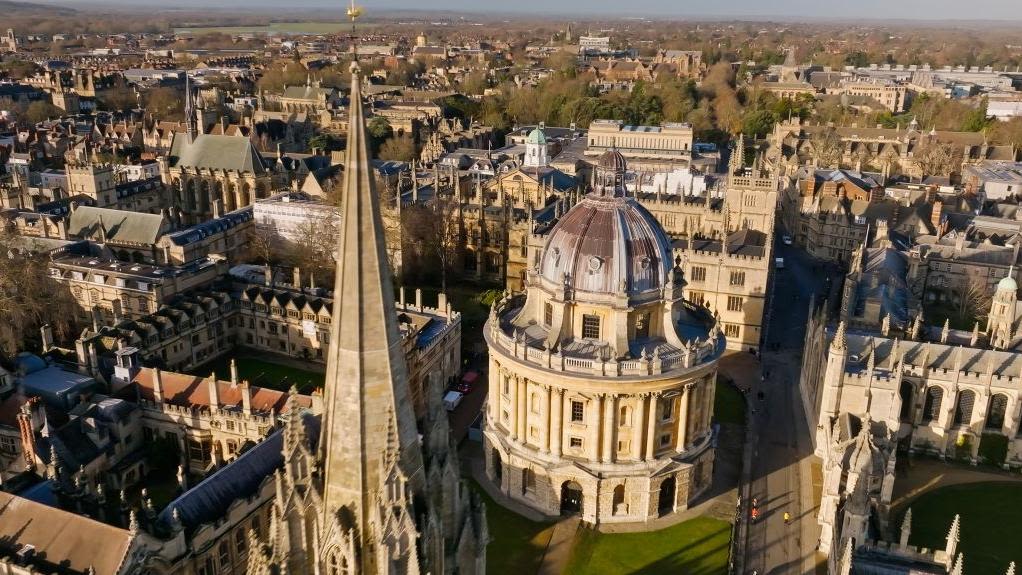

Only 30 prizes are awarded throughout the UK each year, with the 2024 prizes covering the following subject areas: Classics, Earth Sciences, Physics, Politics and International Relations, Psychology, Visual and Performing Arts. Each prize winner receives £100,000 which can be used for any purpose related to the advancement of their research. The University of Oxford was the only institution this year to have four award winners.
Among the awarded researchers, one is from the Medical Sciences Division:
Associate Professor Miriam Klein-Flugge (Department of Experimental Psychology), whose prize recognises her work on experimental psychology, and cognitive and computational neuroscience.
Associate Professor Miriam Klein-Flugge’s research group studies human cognitive processes, with a particular focus on motivation and decision making. She intends to use the Philip Leverhulme Prize funds to continue her research on human decision-making and behavioural flexibility. This will involve developing innovative experiments which combine novel ultrasound brain stimulation techniques alongside more realistic methods of measuring people’s behaviour, such as virtual reality simulations or tracking behaviour over time through smartphone apps. This will enable her to explore the causal relationships between different decision-making processes in real-world situations. Her long-term vision is to conduct fundamental research that provides a platform for translation to psychiatric disease.
She said: ‘This recognition is a testament to the incredible people I’ve had the fortune to work with throughout my career. It also reflects the increasingly interdisciplinary nature of science and psychology, highlighting the importance of collaboration across different fields. I believe it’s this rich exchange of ideas that truly drives innovation.’
Other awards were granted to:
Associate Professor Natalia Ares (Department of Engineering Science), who received the Philip Leverhulme Prize for her work on experimental quantum physics.
Professor Federica Genovese (Department of Politics and International Relations), who was awarded a prize for her work on the international politics and political economy of climate change.
Professor Louise Slater (School of Geography and the Environment), whose prize was for her work on floods, droughts, and climate impacts.
Congratulations to all the awardees!
more recommended stories
 Microplastic Exposure and Parkinson’s Disease Risk
Microplastic Exposure and Parkinson’s Disease RiskKey Takeaways Microplastics and nanoplastics (MPs/NPs).
 Sickle Cell Gene Therapy Access Expands Globally
Sickle Cell Gene Therapy Access Expands GloballyKey Summary Caring Cross and Boston.
 Reducing Alcohol Consumption Could Lower Cancer Deaths
Reducing Alcohol Consumption Could Lower Cancer DeathsKey Takeaways (At a Glance) Long-term.
 NeuroBridge AI Tool for Autism Communication Training
NeuroBridge AI Tool for Autism Communication TrainingKey Takeaways Tufts researchers developed NeuroBridge,.
 Population Genomic Screening for Early Disease Risk
Population Genomic Screening for Early Disease RiskKey Takeaways at a Glance Population.
 Type 2 Diabetes Risk Identified by Blood Metabolites
Type 2 Diabetes Risk Identified by Blood MetabolitesKey Takeaways (Quick Summary) Researchers identified.
 Microglia Neuroinflammation in Binge Drinking
Microglia Neuroinflammation in Binge DrinkingKey Takeaways (Quick Summary for HCPs).
 Precision Oncology with Personalized Cancer Drug Therapy
Precision Oncology with Personalized Cancer Drug TherapyKey Takeaways UC San Diego’s I-PREDICT.
 Iron Deficiency vs Iron Overload in Parkinson’s Disease
Iron Deficiency vs Iron Overload in Parkinson’s DiseaseKey Takeaways (Quick Summary for HCPs).
 Can Ketogenic Diets Help PCOS? Meta-Analysis Insights
Can Ketogenic Diets Help PCOS? Meta-Analysis InsightsKey Takeaways (Quick Summary) A Clinical.

Leave a Comment